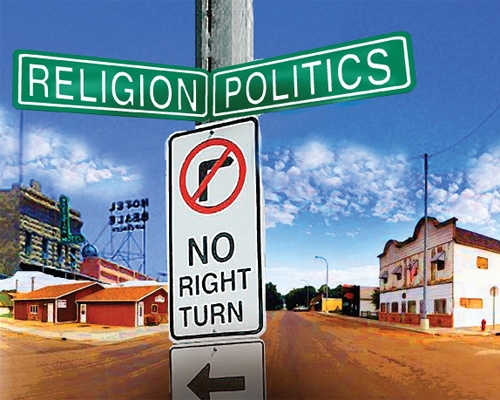I realize that it probably isn't the best political move for me to post my viewpoint regarding such a sensitive subject on a public forum. I do not, however, intend to give off any of my personal beliefs nor aim to influence any persons to a particular set of beliefs (If you would like to spark that conversation, send me an email!). In this post, I only intend to encourage critical thinking and open-mindedness -- not to be skeptical of any particular belief-set, or a lack of one, but to question the motives behind why people become involved in a religion, and whether being born into one is a sufficient reason to stick with a doctrine.

Besides, this blog isn't in fact a purely political one, as its theme is rather universal as long as it's focus is on leadership within the up-and-coming generation. Admittedly though, this post IS far from the "here is the issue, and this is what I am doing about it, or this is what I think what ought to be done" structure of most of my posts. It also deviates from my usual musings of Hawaii politics and higher education. And honestly, I am not even sure if my haphazard rant, that is this post, will make any sense to you readers out there in the blogosphere!
______________________________________________________________________________
Last month, a friend updated his Facebook status to read:
"Religion tends to be something that divides us to the point where we can't fix the bigger problems."

This was a provocative statement to say the least, and it quickly elicited quite a few responses. Of course, as the skeptic, but more importantly as the spiritual being that I am, I was obliged to add my two cents (...or dollars) as well:
"Agreeing with *the Facebook User above*, religion at least somewhat aids in alleviating our bigg'est' problems that empiricism and humans in general cannot possibly explain.
But I must also assert that organized religion poses the same problems as any other large institution: the group becomes greater than the individuals it consists of when people begin to seek identity through conformity. Individuals within the religion are then motivated to remain faithful to their institution by confounding reasons such as shame or acceptance rather than the reason stated in the doctrine.
Moreover, organized religion creates an in-group/out-group ("them and us") mentality that may undermine the crux of the purpose and doctrine of the religion or religious sect, which usually consists of positive messages of harmony among people.
The key, regardless of the basis of your belief system, is spirituality and faith at an intimate and very personal, individual level. While deciding if a religion is suited for his or herself, one should first seek out a general, spiritual, and personal connection before following any specific doctrine or even becoming too involved with any religious fellowship. Spirituality ought to remain a tool that could eventually lead a person into a particular religion, but not visa-versa. Let the religion grab you. Religion can suffice as a director of an existing spiritual journey, but not as the means to achieve spirituality. The latter instance is where the problems associated with religion, as an institution, usually occurs.
BELIEVE! we are so small."
All I am asking you to do is to think about the initial italicized statement and formulate your own response, as did I:
Yes, religion does seem to keep problems from being remedied and often causes greater ones. But is it the existence of religion that divides and disillusions us from finding solutions to our "bigger problems", or is it the obscure and often confounding motivation behind followers' devotion to each institution?
well, my profile pic kinda gave it away lol
ReplyDeleteChristian? Same here, and proud of it!
ReplyDeletevery insightful Mr. Ing. Hahaha, who was that anonmyous poster anyway. :)
ReplyDeleteidk berah, just some kuk.
ReplyDelete=]